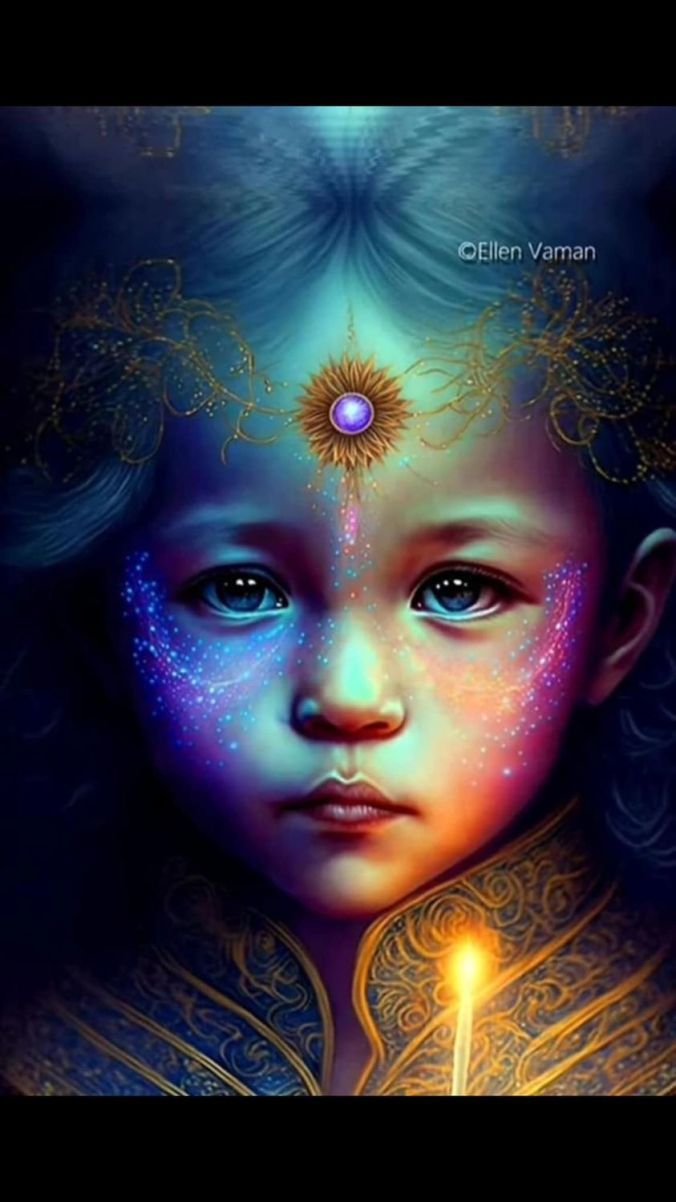Indigo Child: Understanding the Gifted Souls Shaping the Future
Indigo children are often described as a new generation of spiritually aware, highly intuitive, and deeply sensitive individuals. These children are thought to have come into the world with a specific purpose—to bring about transformation and awaken humanity to a higher state of consciousness. Whether you believe in the concept of indigo children or not, there’s no denying that this unique group of individuals has distinct qualities that set them apart.
In this blog, we’ll explore what it means to be an indigo child, the traits that define them, the challenges they may face, and the role they play in shaping the future of humanity. Whether you suspect your child may be an indigo or if you’re reflecting on your own experience as an indigo adult, this guide will help you understand the deeper aspects of this remarkable phenomenon.
What Is an Indigo Child?
The term "Indigo child" was first coined in the 1970s by Nancy Ann Tappe, a parapsychologist and synesthete, who noticed that some children seemed to possess an aura with a deep indigo color. Over time, these children came to be associated with traits such as heightened intuition, a strong sense of purpose, and a resistance to conventional authority or systems.
Indigo children are believed to be part of a new wave of individuals born with special abilities, capable of changing the way we think, perceive, and interact with the world. They are often seen as highly sensitive beings who are not just here to live ordinary lives but to challenge the status quo and lead humanity toward a new era of spiritual awakening.
Common Traits of Indigo Children
Indigo children are unique in their qualities and can often feel different or out of place in society. Some of the most common traits of indigo children include:
-
Heightened Intuition: One of the defining characteristics of indigo children is their strong intuitive abilities. They often have a deep sense of knowing or understanding that goes beyond logic or reason. This intuitive wisdom is not just about emotions but can also extend to an ability to perceive situations and people on a deeper, energetic level.
-
Strong Sense of Purpose: Indigo children often feel as though they are here for a specific purpose, one that may be different from others around them. They can feel a calling to make a difference in the world, even at a young age. This sense of purpose drives their passion and determination.
-
Rebellious Nature: Indigo children are often highly independent and may resist authority, particularly if they feel that it’s limiting their potential or stifling their creativity. They tend to question traditional structures and may struggle with conventional schooling systems, which often don’t nurture their unique abilities.
-
Emotional Sensitivity: These children can be emotionally intense and sensitive. They often pick up on the emotions of those around them and may feel overwhelmed by the negativity or disharmony in the world. Their sensitivity can make them highly empathetic, but it can also lead to emotional exhaustion if they are not properly nurtured.
-
Creative and Imaginative: Indigo children are often highly creative, with vivid imaginations and a desire to express themselves. They may excel in the arts or have a natural talent for music, writing, or visual expression. Their creativity is often linked to their spiritual awareness and desire to manifest new ideas and concepts.
-
A Desire for Truth: They have an innate drive to seek truth and knowledge, often questioning societal norms, beliefs, and traditions. Indigo children are not afraid to challenge established systems and are drawn to finding deeper meaning in life and the universe.
-
Sensitive to Energy: Indigo children are highly sensitive to energy, both positive and negative. They may be able to sense the energy of a place or a person, often leading them to avoid situations or environments that feel "off" or draining.
The Challenges of Being an Indigo Child
While indigo children possess remarkable gifts, their abilities can sometimes be a source of difficulty, both for them and for those around them. Some of the challenges they may face include:
-
Struggling with Authority: Indigo children may find it difficult to conform to traditional systems of authority, such as schools or workplaces. They may resist rules that they feel limit their independence or creativity. This can sometimes result in conflicts with teachers, parents, or authority figures who don’t understand their need for freedom.
-
Feeling Misunderstood: Due to their unique abilities and perspectives, indigo children may feel isolated or misunderstood by peers or family members. They may struggle to fit in with others who don’t share their heightened sensitivity or spiritual awareness, leading to feelings of loneliness or frustration.
-
Emotional Overwhelm: Because indigo children are highly sensitive to energy and emotions, they may become easily overwhelmed by the negativity around them. They might absorb other people’s feelings and find it challenging to separate their emotions from others’ energy, leading to emotional burnout or stress.
-
Difficulty with Conventional Education: Traditional educational systems are often not equipped to nurture the unique learning styles and needs of indigo children. These children may struggle with the rigidity of the school system or feel that their talents are not being fully recognized or developed. This can lead to frustration and a sense of not living up to their potential.
-
Resistance to Social Norms: Indigo children often challenge societal norms and expectations, which can create tension with family or society. Their unconventional thinking and resistance to conformity can make them appear rebellious or difficult, but it’s often a sign of their desire to create a better, more awakened world.
Supporting Indigo Children
Supporting an indigo child requires patience, understanding, and a willingness to embrace their unique gifts. Here are some ways to nurture and guide an indigo child:
-
Encourage Creative Expression: Provide opportunities for them to explore their creativity, whether through art, music, writing, or other forms of self-expression. Allow them to explore their passions and interests without judgment.
-
Foster Independence: Indigo children thrive when they are given the freedom to think for themselves. Encourage independence and provide them with opportunities to make decisions, take responsibility, and solve problems on their own.
-
Support Emotional Awareness: Help indigo children understand their emotions and develop healthy coping mechanisms. Encourage them to express their feelings and create a safe space for them to process their intense emotions.
-
Provide Spiritual Guidance: Indigo children often have a deep spiritual awareness, even at a young age. Help them explore their spiritual beliefs, whether through meditation, mindfulness, or other practices that align with their inner wisdom.
-
Be Patient: The journey of an indigo child can be challenging at times. It’s important to be patient and understanding as they navigate their path. Recognize that their unique gifts are not always understood by society, but they have a higher purpose in the world.
Conclusion
Indigo children are a powerful force in our world, bringing with them heightened awareness, creativity, and a deep desire to change the world for the better. While they may face challenges due to their unique abilities, they are here for a reason—helping us shift towards a more conscious and spiritually awakened society.
If you or someone you know is an indigo child, embrace their extraordinary gifts and support them in their journey. These gifted souls are not just the leaders of tomorrow—they are the catalysts for the spiritual transformation of our world today.


